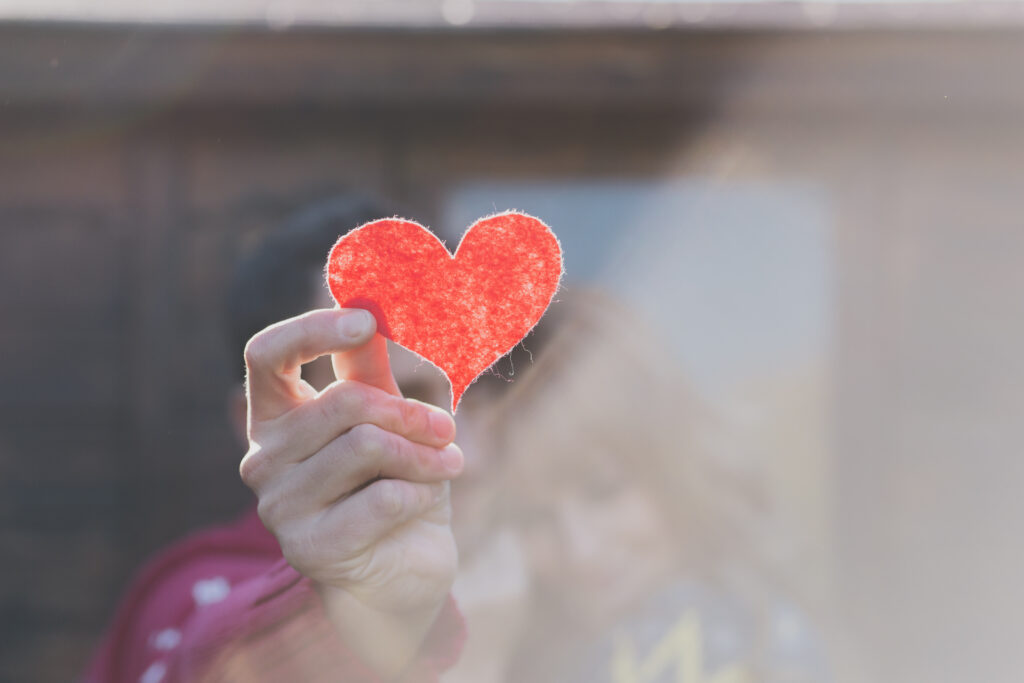Life throws curveballs. Whether it’s juggling school, work, and family, navigating challenging relationships, or facing unexpected situations, we all experience stress and adversity. But amidst the daily grind, there’s a secret weapon hidden in plain sight: kindness. Yes, kindness, not just for others, but for ourselves and the world around us, can be a powerful resilience booster, helping us bounce back stronger from life’s bumps and hurdles.
Mark your calendars! February 17th is Random Acts of Kindness Day, a global day dedicated to spreading goodwill and establishing connections. While this day serves as a fantastic reminder to shower kindness upon others, we often overlook its transformative power for ourselves. Here’s why incorporating random acts of kindness into your daily routine can be your personal resilience superpower:
The Science of Kindness
Oxytocin and the “Love Hormone”
Scientific research consistently demonstrates that acts of kindness trigger the release of oxytocin, commonly known as the “love hormone” or “bonding hormone.” Oxytocin plays a pivotal role in social bonding, trust, and emotional well-being. Engaging in acts of kindness, regardless of their magnitude, prompts the production of this feel-good hormone, resulting in an enhanced mood and a heightened sense of connection with others.
The Ripple Effect of Kindness
The impact of kindness extends beyond the individual, influencing not only the recipient but also the person performing the act and even those who witness it. It creates a ripple effect, contributing to a more positive and compassionate community.
Stress Reduction and Hormonal Balance
Acts of kindness not only boost oxytocin levels but also reduce cortisol, a stress hormone. This dual effect contributes to an overall improvement in mental health and well-being, associated with better cardiovascular health, enhanced immune function, and improved cognitive performance.
Neurological Rewards of Kindness
Neuroscientific research indicates that engaging in kind actions triggers the release of dopamine, a neurotransmitter associated with pleasure and reward. This neurological response reinforces the likelihood of repeating kind behaviors, establishing a positive feedback loop.
Kindness and Resilience

Resilience, often described as the capacity to bounce back from adversity, is a key determinant of how individuals navigate life’s challenges. In this context, kindness emerges as a potent force in building and strengthening resilience. The profound impact of kindness extends beyond momentary gestures, playing a crucial role in building a supportive environment and enhancing emotional well-being.
Cultivating Emotional Strength through Kindness
Acts of kindness contribute significantly to emotional well-being, promoting a positive mindset that is essential for resilience. When individuals engage in acts of goodwill, they not only experience the immediate satisfaction of helping others but also cultivate a reservoir of positive emotions. This emotional bank, filled through acts of kindness, becomes a valuable resource during adversity, empowering individuals to face challenges with greater emotional strength.
Kindness as a Coping Mechanism
Kindness serves as a coping mechanism in times of adversity. When individuals face challenges, the knowledge that they belong to a community that prioritizes compassion can be a source of comfort. Acts of kindness, whether received or given, provide a buffer against the negative effects of stress and adversity, enabling individuals to cope more effectively and maintain a hopeful outlook.
Simple Acts, Big Impact
Random Acts of Kindness Day serves as a poignant reminder of the transformative power that simple gestures can have on individuals and communities. The essence of this day lies in encouraging people to engage in acts of kindness that, though seemingly small, carry the potential to create a ripple effect of positivity.
The Beauty of Simplicity
The simplicity of these acts is what makes them accessible to everyone. Holding the door open for a stranger, leaving an uplifting note, or sharing a genuine smile requires minimal effort, yet their impact resonates far beyond the moment. These small gestures serve as a testament to the idea that kindness is not bound by grandeur; rather it thrives in the simplicity of genuine human connection.
Cumulative Impact on Community Well-being
The cumulative effect of individual acts of kindness contributes to the creation of a more positive and compassionate community. When people engage in kind actions, they contribute to a collective atmosphere of warmth and goodwill. Over time, this cumulative impact shapes the culture of a community, making an environment where kindness becomes a shared value and a way of life.
Impacting Mental Health and Well-being
Engaging in acts of kindness has been linked to positive mental health outcomes. Both the giver and the receiver experience an uplift in mood, contributing to overall well-being. By actively participating in Random Acts of Kindness Day, individuals contribute not only to the happiness of those around them but also to their own mental and emotional wellness.
The Power of Positive Affirmations
Integrating positive affirmations into our daily routines serves as a powerful tool for cultivating a positive mindset. Positive self-talk involves consciously choosing words and phrases that reinforce optimistic beliefs about oneself and the world. By repeating affirmations, individuals create a mental environment that builds self-confidence, resilience, and a can-do attitude.
Shaping Resilience through Self-Encouragement
Positive affirmations play a crucial role in building resilience by influencing how individuals perceive and respond to challenges. When faced with adversity, those who engage in positive self-talk are more likely to view difficulties as temporary setbacks rather than insurmountable obstacles. This adaptive mindset enables individuals to bounce back from setbacks with increased determination and purpose.
Affirmations as a Catalyst for Kindness
Positive affirmations catalyze kindness by doing a compassionate inner dialogue. When individuals cultivate self-love and acceptance through affirmations, they are better equipped to extend kindness to themselves and others. This self-compassion becomes a foundation for making positive relationships and creating a more empathetic and understanding community.
The Role of Kindness in Mental Health
Acts of kindness emerge as powerful antidotes to the challenges posed by stress, anxiety, and depression. Scientific studies consistently demonstrate that engaging in kind actions triggers the release of neurotransmitters such as oxytocin and endorphins, which are associated with positive emotions and mood regulation. Consequently, regular participation in acts of kindness serves as a natural and accessible way to alleviate mental health struggles.
Reducing Stress Levels
The stress-reducing effects of kindness are particularly noteworthy. Acts of goodwill stimulate the production of oxytocin, often referred to as the “love hormone,” which counteracts the physiological responses associated with stress. By having a positive hormonal balance, kindness acts as a buffer against the detrimental impacts of chronic stress, promoting not only mental but also physical well-being.
Easing Anxiety and Depression
Kindness has been linked to a reduction in symptoms associated with anxiety and depression. The positive impact of kind gestures extends to individuals experiencing mental health challenges, offering a source of emotional support and connection. It underscores the potential for kindness to be an integral component of comprehensive mental health strategies and interventions.
Teaching Kindness to Children
The early years of a child’s life are a crucial period for developing core values, and kindness stands as a cornerstone of positive character development. Teaching children about empathy and compassion lays the groundwork for making positive relationships, understanding diversity, and contributing to the well-being of society.
The Role of Parents and Educators
Parents and educators play pivotal roles in shaping a child’s worldview and moral compass. Modeling kindness through daily actions, using kind language, and emphasizing the significance of helping others create a powerful learning environment. By embodying these values, adults become living examples, showcasing the importance of kindness in building meaningful connections.
Hands-On Learning with Random Acts of Kindness Day
Random Acts of Kindness Day serves as an opportune moment to actively involve children in activities that promote empathy and reinforce the value of kindness. Engaging in small, age-appropriate acts like creating cheerful cards for classmates, helping with chores, or expressing gratitude builds a sense of responsibility and empathy in children. These experiences become tangible lessons that lay the foundation for a lifetime of compassionate behavior.
Creating a Kindness Calendar
A kindness calendar serves as a blueprint for infusing intentional acts of kindness into everyday life, transforming Random Acts of Kindness Day into a month-long celebration. It provides a structured approach, inspiring individuals to engage in daily acts that go beyond spontaneous gestures. This deliberate planning amplifies the impact, creating a sustained culture of kindness throughout February.
Daily Acts of Kindness
Craft your kindness calendar with a diverse array of daily acts of kindness, both big and small. Include actions that cater to different aspects of kindness—whether it’s expressing gratitude, lending a helping hand, or spreading joy. The variety ensures that individuals can choose acts that resonate with them, making the calendar adaptable to various preferences and lifestyles.
Cultivating a Habit of Kindness
A kindness calendar is not just a one-time initiative; it’s a tool for cultivating a habit of kindness. By engaging in intentional acts throughout February, individuals begin to internalize the value of kindness as a daily practice. The repetition of positive behaviors reinforces this habit, making kindness a natural and integral part of their lives.
Conclusion
Random Acts of Kindness Day serves as a reminder of the power of kindness to transform individuals and communities. By embracing kindness as a tool for building resilience, we can create a more compassionate and supportive society. As we approach February 17th, let’s take the opportunity to spread kindness, not only on this designated day but throughout the year, making a culture of empathy and resilience.


